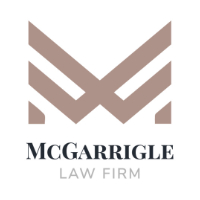Mohnton White Collar Crime Lawyer, Pennsylvania
Sponsored Law Firm
-
 x
x

Click For More Info:
-
Law Office of Mark S. Guralnick
55 Madison Avenue 4th Floor Morristown, NJ 07960» view mapCriminal Defense Law Dedicated. Fearless. Successful.
Mark S. Guralnick and his legal team have helped clients throughout the USA and across the world by applying unparalleled dedication and hard work to each case.
800-399-8371
Daniel McGarrigle
✓ VERIFIEDMilitary & Veterans Appeals, White Collar Crime, DUI-DWI, Criminal
Attorney Daniel McGarrigle is an aggressive advocate and experienced litigator; he has tried hundreds of cases and handled all types of criminal matte... (more)
FREE CONSULTATION
CONTACTHarry W. Fenton
Lawsuit & Dispute, Divorce & Family Law, White Collar Crime, Criminal
Status: In Good Standing
FREE CONSULTATION
CONTACTDavid D. Ritter
Internet, Federal Claims Court, White Collar Crime, Criminal
Status: In Good Standing Licensed: 28 Years
Daniel Patrick Emkey
Juvenile Law, Landlord-Tenant, Health Care, White Collar Crime, Criminal
Status: In Good Standing
Joseph Andres Guillama
Lawsuit & Dispute, Family Law, Divorce & Family Law, White Collar Crime
Status: In Good Standing
Ryan William Mcallister
Lawsuit & Dispute, Divorce & Family Law, White Collar Crime, Criminal
Status: In Good Standing Licensed: 18 Years
 Mark Guralnick Morristown, NJ
Mark Guralnick Morristown, NJ AboutLaw Office of Mark S. Guralnick
AboutLaw Office of Mark S. Guralnick Practice AreasExpertise
Practice AreasExpertise

